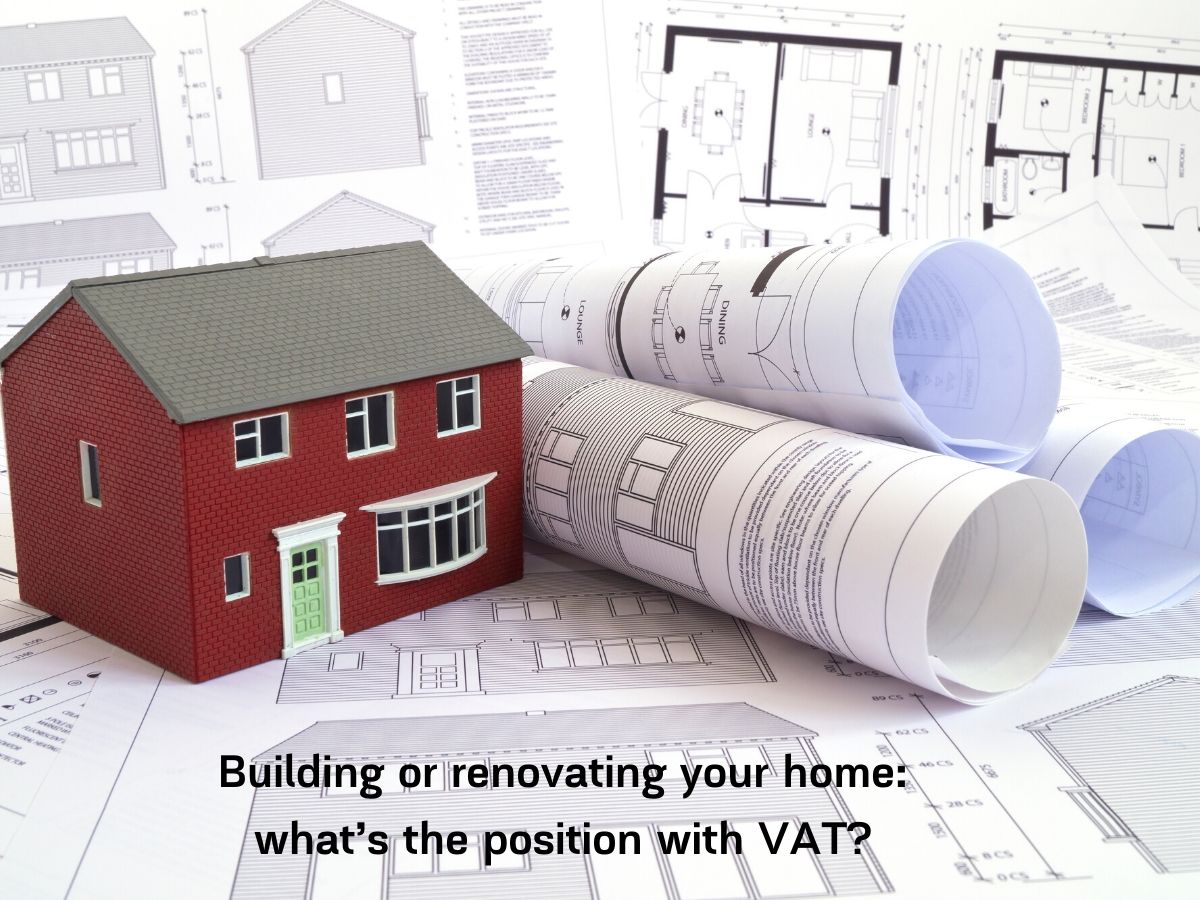Building or renovating your home: what’s the position with VAT?
Whether or not you need to pay VAT when building or renovating your home can make or break a project; after all VAT at the standard rate will add 20% to the cost.
So, if you can save any or all of that 20%, it makes sense to do your homework and get it right. Right?
The Rules
So what are the rules relating to VAT on goods and services linked to building or renovating a residential property?
In short, it depends on the purpose. People often assume that services relating to the construction of a new house are zero-rated, but that’s not true. The professional services of architects, surveyors, and anyone acting as a consultant (such as a structural engineer or a project manager) are excluded from the zero rate for new builds.
When it comes to home renovations, there’s a common but misplaced assumption that if the changes are required to provide access or ease of use for someone with a disability, then that will be zero-rated. Why? People regularly assume, wrongly, that all goods and services supplied to disabled people qualify for zero rating. In fact, the goods and services that a disabled person can claim exemption from are somewhat limited. You can find them all set out in the HMRC Manual for VAT Relief for disabled people. In terms of building and construction services, they include:
- constructing ramps or widening doorways or passages to facilitate entry to or movement within your own residence;
- providing, extending or adapting a bathroom, washroom or lavatory, where this is necessary by reason of your condition;
- services performed in the installation of a lift to facilitate your movement between floors, and
- the supply of goods in relation to the above services.
Key to note is that the services of an architect or other professional advisor are not included, and this interpretation is confirmed in Notice 701/7. (See Section 6).
Nor does HMRC allow zero-rating for general property extensions or enlargements. Therefore, if you don’t plan correctly you could potentially be subject to an unnecessary charge of 20% on the whole build cost.
Example of how it works
Here’s one example of how the small print can make a big difference. Suppose you plan to demolish almost all of your existing property, and rebuild it to repurpose rooms and access throughout for disabled access. Surely then, the Manual allows for goods supplied for the project – and some services – to be zero-rated?
The issue here is that word ‘almost’. If you planned to leave the attached garage in situ, think again. It might save approximately £10k if you elect not to demolish and rebuild the garage, which seems at first sight to be a good saving if the existing garage is fit for purpose. But including the garage in your scope of work – leveling and rebuilding it as well – would lead to your total build cost being zero-rated. If your total budget is £400k then you’ll be liable to VAT at £80k, if you keep the existing garage! Even after paying the additional £10k for a new garage, you’ll saved £70k by flattening it as well, by claiming the VAT rebate on the total cost.
Get Advice before starting
So, have a free chat with us to get initial advice on the VAT exposure of your project – ideally before you sign a contract with the builder. There are many weird and wonderful ways in which VAT is chargeable in these projects, and any fees that ultimately arise if you retain us will usually be recouped many times over in the VAT saved.
If you’ve already completed a project don’t despair, we can also offer a retrospective review of costs invoiced and how VAT has been applied. If it has been applied wrongly we should be able to reclaim the relevant VAT. So don’t be out of pocket, call us today.




